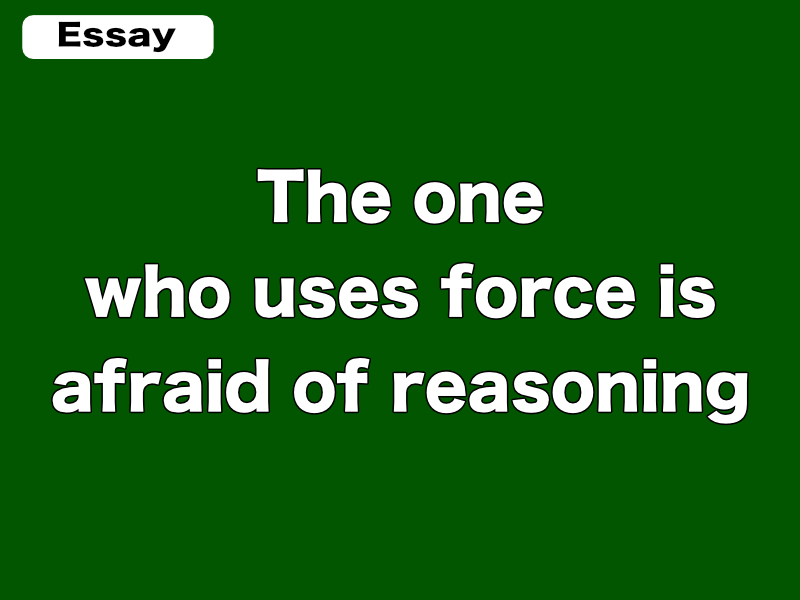The quote "The one who uses force is afraid of reasoning" suggests that those who resort to violence and coercion do so because they are afraid of opposing ideas and reasoning. This essay will explore this concept and examine the evidence for this in world history, politics, and literature.
In world history, the use of force has been a common tactic employed by totalitarian regimes to suppress dissent and maintain control. For example, Nazi Germany used violence to suppress dissent and maintain control of the German people, despite their ideas and beliefs being at odds with those of the regime. Similarly, the Soviet government suppressed political dissent through the use of forced labor camps and secret police to eliminate opposition. In both cases, the use of force reveals a fear of opposing ideas and ideologies.
In politics, authoritarian tactics are often used to suppress free speech and maintain control. Leaders resort to violence and coercion in the face of opposition because they fear opposing ideas and the possibility of losing control. For example, the current regime in China uses censorship and suppression of dissent to maintain control and prevent opposition to the government's policies. Similarly, former Philippine President Ferdinand Marcos used authoritarian tactics, including the suppression of free speech and the use of violence against political opposition, to maintain power.
In literature, characters who use violence and coercion are often motivated by fear, insecurity, or a lack of confidence in their beliefs. For example, in William Golding's "Lord of the Flies," the character Jack uses violence to control the other boys on the island, revealing his fear of losing power and control. In George Orwell's "1984," the character Big Brother uses force and manipulation to maintain control over the citizens of Oceania, revealing a fear of dissenting ideas and beliefs.
In conclusion, those who use force are afraid of reasoning. The evidence for this can be seen in world history, politics, and literature, where the use of force is often employed to suppress dissent and maintain control. It is important to emphasize the value of free speech, open dialogue, and reasoning in a democratic society, as these are the hallmarks of a free and just society. The quote "The one who uses force is afraid of reasoning" is therefore a reminder of the dangers of suppressing dissent and the importance of fostering open and honest discourse.

0 comments